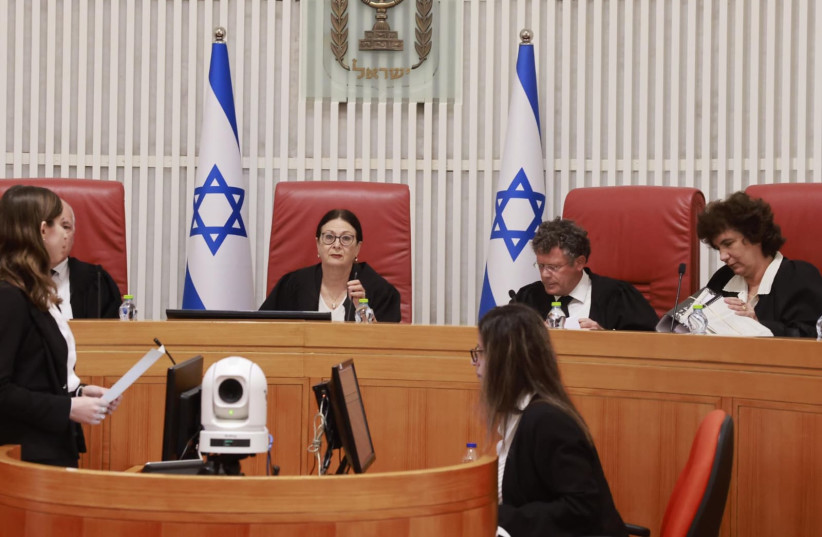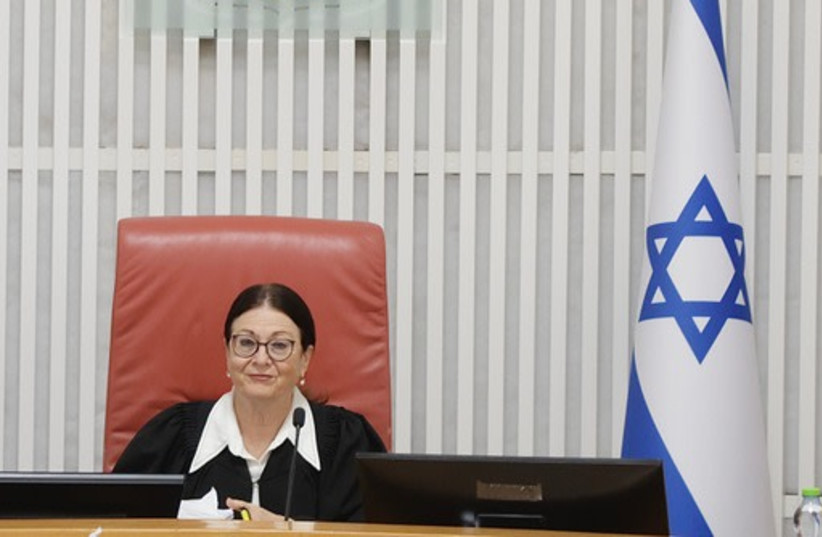by Michael Starr
The High Court of Justice is scheduled to hear arguments on Thursday on whether the incapacitation law’s application should be delayed.
 |
Protesters rallied outside the Supreme Court of Justice building as 11 justices convened on Thursday morning to hear arguments on delaying the application of the incapacitation law until the next government.
The hearing is the second on the March 23 incapacitation law, which altered the conditions for the procedure to have the prime minister declared unfit for service. The law clarified that the incapacitation procedure can only be activated for health reasons, and only after approval by the prime minister and a series of votes by the government and Knesset Home Committee.
Three justices heard August 3 arguments on petitions to strike down the basic law amendment over claims that the legislation was motivated by an attempt to shore up Prime Minister Benjamin Netanyahu's legal position.
Knesset legal representative Yitzhak Beret argued that the threshold for judicial review of the law was not being met, in particular regarding to it being political, as "In past cases, political considerations have not been enough to strike down a basic law."
Personal motivations for the law
Under query from Justice Alex Stein, Beret admitted that part of the motivation for the law was likely personal or political, but the status of the government is a personal and political matter for the MKs that voted for the legislation. He said that there is no way to be completely certain why they voted, as MKs have a wide variety of interests, and their job is politics and implementing their ideologies.


Netanyahu has been subject to the conditions of a conflict of interest agreement since 2020, limiting some of his prime ministerial powers to prevent fear that he may influence his ongoing corruption trial. This included limiting his role in appointing of law enforcement, judicial, and prosecution officials who could impact the trial.
The judicial reform, which was announced in January, included changes to the rules and composition of the Judicial Selection Committee. Critics fear that political judges could preside over a corruption trial appeal. The reasonableness standard law was also a concern, as the coalition could replace the attorney-general without the requirement to behave reasonably and explain their policy.
Following reports that the attorney-general sought the ousting of Netanyahu through the incapacitation procedure, the coalition began the legislation of the new law.
Michael Starr
Source: https://www.jpost.com/israel-news/politics-and-diplomacy/article-760770
No comments:
Post a Comment